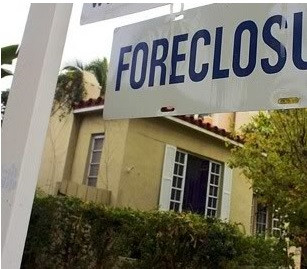RI State Report: SNAP Fraud, Foreclosures and Tougher Parole Laws
Saturday, March 16, 2013
This week's State Report takes a look at the controversial Ken Block report, a move towards creating an Inspector General and RI's improving foreclosure rate.
Also on the docket this week is AG Kilmartin’s call for companies to stop doing business with Iran and the Senate’s passage of a tougher murder/parole bill. Lastly, we’ll look at new housing foreclosure statistics. Keep reading to find out whether foreclosures are on the rise or in decline.
Chafee releases report on government waste and fraud
On Wednesday, the governor’s office released a redacted report outlining extensive insufficiencies in Rhode Island’s social services benefits program, as well as significant waste and fraud by those receiving said benefits.
GET THE LATEST BREAKING NEWS HERE -- SIGN UP FOR GOLOCAL FREE DAILY EBLASTIn particular, the report found alarming discrepancies in the state’s food stamp program. Such inconsistencies ranged from homeless food-stamp recipients purchasing gourmet mail-order food to retailers buying food stamp cards from recipients and using the funds to stock their shelves.
Additionally, the report identified that 800 people living in publicly subsidized housing in Providence receiving food stamps had underreported roughly $1.7 million in nutritional assistance benefits. The report also detailed cases of deceased people and prisoners receiving food stamp benefits that were later used.
As for who’s responsible, the report associated many of the problems with the state government’s outdated computers and failures by state agencies to share information. In fact, Rhode Island’s 39 cities and towns are listed 400 different ways due to the inadequate state computer systems.
According to the Governor, his administration is working with former gubernatorial opponent Ken Block, whose Simpatico Inc. prepared the report, to reduce the problem.
"The challenges of eliminating waste, fraud, and abuse are in every state in the country, and here in Rhode Island my administration has been addressing them since my first year in office,” Chafee said this week. “We have included state budget funding for the Office of Program Oversight and Integrity. We have met frequently with state and federal law enforcement. We have been working with the federal government to expand the state's jurisdiction and ability to investigate."
According to federal statistics, Rhode Island had the third highest “payment error rate” for food stamps in the country for Fiscal Year 2011. The state’s error rate for 2012 was 7.69 percent, which was twice the national average.
Sheehan proposes state Inspector General
In light of the independent report released by Gov. Chafee’s administration, Sen. James C. Sheehan (D-Dist. 36, Narragansett, North Kingstown) introduced legislation on Wednesday that would establish an Office of Inspector General as an independent agency tasked with preventing and detecting fraud, abuse, waste and mismanagement in government.
“I did not propose this legislation because I am assuming fraud or mismanagement in Rhode Island government,” . Sheehan said. “Then again, I am not assuming that there are no problems. What I hope to accomplish through enactment of this bill and establishment of this office is that the expenditure of public funds is conducted in an open, aboveboard and fully transparent fashion. Our residents have a right to know how their hard-earned tax dollars are being spent and, further, to know that someone is watching to make sure there is no abuse or fraud.”
If Sheehan’s bill is enacted, Rhode Island would be become the second state in New England to have an Inspector General’s office. Established in 1981, the Massachusetts Office of the Inspector General is the oldest state-level inspector general’s office in the country.
Sheehan’s bill is currently before the Senate Committee on Finance.
Senate passes stricter murder/parole bill
On Tuesday, the Senate approved legislation that requires individuals convicted of first- or second-degree murder to serve at least 50 percent of their sentence before being eligible for parole.
“Individuals who commit first- and second-degree murder should be expected to serve at least a majority of their sentences and really, I think, they should be serving their full sentences for such a heinous crime,” said Sen. Leonidas P. Raptakis, the bill’s primary sponsor. “At the very least, they should serve no less than half of their term, which has been the case in some instances.”
Raptakis (D-Dist. 33, Coventry, East Greenwich) has introduced similar legislation in prior years, but argues the recent parole granted to Alfred A. Brissette Jr. has spurred a renewed sense or urgency for enacting the law. In December 2012, Brissette was granted parole after serving 15 years of a 35-year sentence for the murder of a Woonsocket woman in 1999.
“The case of Alfred Brissette is just one example of a convicted murderer being released prior to serving even half of the imposed sentence,” Raptakis said. “This bill is about proper justice and truth in sentencing. The public expects that those convicted of such a violent crime as murder should do their time.”
The bill will now make its way to the House of Representatives for consideration. An identical House bill sponsored by Rep. Patricia A. Serpa is before the House Committee on Judiciary.
Kilmartin wants to penalize companies that do business with Iran
Citing Iran’s alleged state-sponsored terrorism and its ongoing pursuit of nuclear weapons program, Attorney General Peter Kilmartin is calling on the General Assembly to pass new legislation that would divest any and all state pension funds from companies that do business with embattled Middle Eastern Regime.
“Corporations and investors that do business with Iran support and strengthen a dangerous regime that is developing nuclear weapons, brutally repress its own people and sponsor terrorism worldwide,” Kilmartin said. “Companies that wish to continue ‘business as usual’ in Iran should be subject to debarment from state government contracts. The prospect of debarment is one of the most effective ways to compel corporations to end their Iran business.”
The legislation, which is sponsored by Rep. Mia Ackerman (D – Dist. 45, Cumberland, Lincoln) and Rep. Christopher Blazejewski (D- Dist. 45, Providence) in the House and Sen. Joshua Miller (D-Dist. 28, Cranston, Providence) in the Senate, would require, within 90 days of enactment, that the State Retirement Board identify all companies that have direct or indirect holding in companies with business operation in Iran. Said companies will have 90 days to cease operations or convert them to inactive operations. Failing to do so would result in public fund divestment according to a statutory schedule.
Rhode Island has similar divestiture laws in place with companies that do business in South Africa and Northern Ireland.
Foreclosure rate on the decline, but homeowners still vulnerable
Rhode Island’s foreclosure rate declined significantly last year, but homeowners are still at risk due to a slow-moving economy, says a new study released on Thursday.
The report conducted by HousingWorks RI found that roughly 1,600 residential foreclosure deeds were filed last year, which is a decline of 23 percent from the previous year and down 43 percent from 2009. Foreclosures dipped by over 11 percent in the fourth quarter, compared to the previous year. The report also found that seriously delinquent loans dropped under 8 percent.
Despite the general decline in foreclosure deeds, high cost burdens and recurrent unemployment continue to make many homeowners susceptible to foreclosure.
“Four in 10 households with a mortgage are considered cost burdened, spending more than 30 percent of their income on housing costs,” said Jessica Cigna, the research and policy associate at HousingWorks RI. “Looking closer at U.S. Census data we see that 18 percent of those same households have someone unemployed.”
Rhode Island currently leads New England and is tied for seventh in the nation for the number of foreclosure starts, according to the Mortgage Bankers Association National Delinquency Survey data.
Related Articles
- RI State Report: Is It High Time to Legalize Marijuana?
- State Report: Election Recap & Revamping the Board of Elections
- State Report: Republican Shakeup, RI Loses More Jobs & Climate Change
- RI State Report: No More Free Healthcare for Lawmakers?
- State Report: Gay Marriage Battle, Foreclosure Crisis & the Sawyer School
- State Report: Revamping EDC, Jason Pleau’s Death Penalty Case & Landmark’s Sale
- State Report: 38 Studios Debacle, Unemployment Dips & Pot Dispensaries
- State Report: Gay Marriage, Sawyer School Closure & Providence Tobacco Ban
- State Report: Rhode Island Pension Reform & Falling Off the Fiscal Cliff
- State Report: Abolishing the Sales Tax, Fiscal Cliff & Increasing the Minimum Wage
- State Report: Hurricane Aftermath, the 38 Studios Lawsuit & House Oversight
- State Report: Speaker Fox’s Battle, Tax Amnesty & the 38 Studios Debacle
- State Report: Chafee’s Budget, Unemployment Rate & Gay Marriage Vote
- State Report: Medical Marijuana, RI’s Business Ranking & Obama Supports Cicilline
- State Report: The House Makes History, Taxes & Housing On The Rise
- RI State Report: Bad News for Moreau, Plastic Bags and Sales Taxes
- State Report: Changes at EDC, Hurricane Sandy & Christmas Tree Chaos
- State Report: Medical Pot, Central Falls Corruption & Educating Poll Workers
- RI State Report: EDC Nominees, Unemployment & An E-Cigarette Ban
- State Report: Cicilline VS Doherty, Chafee’s Approval & Fixing the EDC
- State Report: RI’s Disastrous Unemployment Rate, Gun Safety & PC Ponies Up
- RI State Report: Gay Marriage, Gun Registration and Calamari
- State Report: Cranston Controversy, Rocky Point & a Corrupt Mayor Resigns
- State Report: RI’s Poor Business Rankings, Shakeup in the Governor’s Office & the Fiscal Cliff




